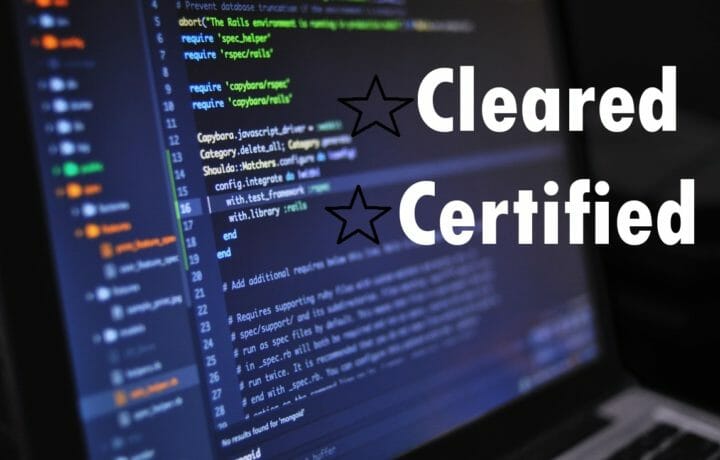The Linux admin community is a very close knit and enthusiastic community. With so many discussion forums to join, as well as developer communities, it is easy to find help when you need it most. These forums and communities are made up of Linux enthusiasts ranging from seasoned experts to Linux newbies. If you are an avid user of Linux operating systems, there is sure to be a group that meets your needs. Due to the widespread use of Linux, there is a great need for experts to manage and maintain the systems.
As a recruiter, it can be difficult to know how to find a qualified Linux admin. However, if the candidate holds certain Linux certifications, it is easier to see who stands out in the crowd. On the other hand, with so many different certifications available, it can be daunting for tech professionals to pick one. Here is a list of the top Linux certifications in demand for 2019, and a brief background on each.
linux Certification Backgrounds
Red Hat Certified Engineer (RHCE): The RHCE certification is one of the most widely recognized and distinguished Linux certifications. The RHCE is also one of the more difficult certifications to obtain. Prior to attempting the RHCE exam, it is a requirement to pass the Red Hat Certified System Administrator (RHCSA) exam and obtain the certification. Red Hat is a Linux distro that is widely used as a baseline among government agencies alike. Being that it is the most widely accepted Linux distro for government projects, it is imperative to obtain this certification if you plan on working on government Red Hat systems.
CompTIA Linux+: CompTIA has created some of the most sought after certifications on the market today. Their Linux+ certification is definitely one of the gems in their certification portfolio. Most Linux based projects require this certification as a baseline for any prospective candidate. In 2010, CompTIA partnered with LPI to create the new Linux+ exam which exists of two exams LXO-103 and LXO-104. When both exams are successfully passed, the tester will obtain both the Linux+ certification as well as the LPI certification. However, CompTIA has recently marked the Linux+/LPI certification end of life as of October 1, 2019. The new Linux+ exam will consist of one exam.
Linux Professional Institute (LPI): Founded in October of 1999 by the father of Linux, Linus Torvalds, the Linux Professional Institute is geared towards helping individuals gain credibility in the Linux career field with their certifications based on Linux technologies. The LPI certification roadmap consists of three different certifications, the LPIC-1: Linux Administrator, LPIC-2: Linux Engineer and LPIC-3: Linux Enterprise Professional certification. There are no prerequisites to taking the LPIC-1 exam, as it is considered an entry level or junior level certification, although both the LPIC-2 and LPIC-3 require the respective prerequisite certifications.
Linux Training Available
RHCE: The RHCSA Rapid Track Course with exam.
Linux+: eLearning with CertMaster Learn for Linux+.
LPI: There are some free training materials for self-study available through LPI.
linux certification Exam Details
RHCE: To put it bluntly, this exam is a beast! In order to obtain the RHCE certification, you must first be RHCSA certified and then pass the four hour RHCE exam. The exam consists of hands-on, performance based questions that will test your real world knowledge. The exam questions are both demanding and intense in nature and will test your ability to rely on your expertise in navigating and troubleshooting the Red Hat operating system. The exam costs $400.
Linux+: The new Linux+ exam will consist of 90 questions which are comprised of performance-based, multiple choice and multiple response formatted questions. The candidate will have 90 minutes to complete the exam and a passing score will be 720 on a scale of 100 to 900. The exam is available in English, Japanese, Portuguese and Spanish. The cost for the exam is $319.
LPI: The LPIC-1 Certified Linux Administrator certification consists of two exams (LPI 101 and 102), both comprised of 60 multiple-choice and fill in the blank questions. The candidate will have 90 minutes to complete the exam and the exam cost is $200 USD per exam. The LPIC-2 Certified Linux Engineer certification also consists of two exams (LPI 201 and 202) comprised of 60 multiple-choice and fill in the blank questions. The cost is $200 per each exam and the cost may vary per region. The LPIC-3 300: Linux Enterprise Professional Mixed Environment certification consists of one exam (LPI 300) which is comprised of 60 multiple-choice and fill in the blank questions. The candidate will have 90 minutes to complete the exam and it costs $200.
What Next?
RHCE: The next step in the Red Hat certification roadmap is the Red Hat Certified Architect (RHCA) certification.
Linux+: CompTIA offers many good certifications, it is hard to say what comes next after obtaining Linux+. My suggestion would be to decide which route you want to go after Linux, maybe Server+ or the RHCSA certification.
LPI: Obtaining all three LPI certifications would be an incredible accomplishment within itself. If you can obtain all three certs, shift your focus to the Red Hat certifications.
Is it For Me?
This is a great question and one that require some reflection on where you want to go in your Linux career. Are you mainly a virtualization engineer and just want to bolster your creds by gaining some Linux certs? Then your best bet would be to get Linux+ and/or LPIC-1. f you are a hard core Linux admin/junky, go for the gold and get all three at some point, but start with the RHCSA/RHCE track. Linux+ will be of no value to you. I hope this has helped you decided which certification is best for your Linux needs. Take time to decide which path you want to take and then build a certification roadmap of your own. Good luck!



